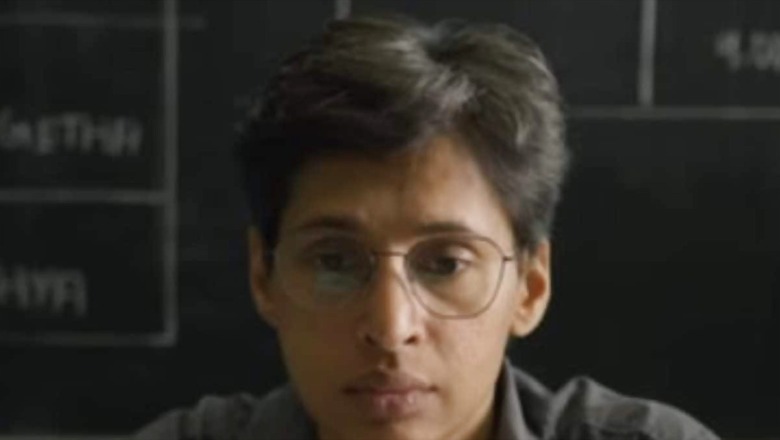
views
The premise of Neela Nira Sooriyan has all the potential of becoming a ‘crybaby’ film. Arvind (Samyuktha Vijayan), a physics teacher at a local school in Pollachi, is going through a gender transition, and the world around him isn’t ready for such progression. His (the review has used the pronouns he and him as the transition is yet to happen in the plot) father has once headed their local caste body and has a reputation to maintain. Arvind’s uncle scolds him for driving a pink coloured scooter and says, “First of all get a bike which is manly enough.” The school’s vice-principal–the only caricature in the entire movie–is against girls wearing make-up and she is obviously not ready for a complete gender changeover. A melodramatic film about the hurdles of Arvind becoming Bhanu wouldn’t have been an excess given the possibilities. Yet, Samyuktha, who is also the director and the co-producer, stays away from such self-victimization or invoking self-pity. Instead, Neela Nira Sooriyan is made to be a realistic and sober film that’s effective. It invokes empathy not pity. It appeals to the mind more than the heart, and that’s refreshing.
What’s more refreshing about the film is where it begins. We meet Arvind when he is already taking hormone medication for the transition. In the first scene, we see him try to sound more feminine on the phone. He keeps practising the lines, “Hello, I am Bhanu.” After several attempts, he calls a customer care executive and introduces himself as Bhanu, but the person at the other end identifies him as, “Sir.” We then hear Arvind’s mother call after him and he resorts to his masculine voice to respond. The scene achieves a lot. It establishes we have entered the story a bit late, and it also introduces both Arvind and Bhanu and that the transition is a work in progress. Above all, it is all subtle–both in terms of expositions and mood.
The undramatic actualisation of Bhanu helps you relate to her as a fellow human being struggling to establish her identity. The very sober nature of the film tries to stop the ‘othering’ of the community. Bhanu is the most restrained and calm person in the entire film. Her calmness seeps throughout the film making her an affable presence. The unconscious bias that ‘we are seeing a film about a transgender person’ is replaced by the feeling of seeing a fellow human being struggling for her identity. The film, both in its form and content, breaks all the cliches and images we associate with transgender community, without any glaring effort, and that’s the major win of Samyuktha.
There’s a particular moment that best expresses the entire tone of the film. Bhanu walks back dejected from the gazette office as the officer refuses to let her call herself a woman. She is forced to take up the identity as ‘Thirunangai’, a Tamil term used to refer to a transgender person in the state. She treads out dejected and is approached by a mother, who asks Bhanu to bless her ailing child because she is a transgender person. The mother even offers money. Bhanu is embarrassed and walks away refusing to do so. Later, she recounts the incident to her only friend. “I don’t know whether to laugh or cry about it,” she says. Juxtapose it with the scene where her colleagues force her to use a separate restroom that’s about half a kilometer from the school premise. Bhanu resides in a society which is ready to worship her as some supernatural entity but denies some basic rights. The movie doesn’t spell it out for you, but such irony is omnipresent in it.
Another brilliant moment in Neela Nira Sooriyan is the confrontation between Bhanu and her cousin (Semmalar Annam). The sister’s husband ogles at Bhanu in a saree and goes, “You are prettier as a woman than as a man.” His wife chides, “Everything looks prettier to you but me.” The theatre erupted in laughter. Samyuktha doesn’t walk around eggshells with Nila Nira Sooriyan, even while handling such a ‘serious subject’, which is rare in Tamil cinema. The ending could be termed inconclusive as we don’t get to see any characters going through that dramatic redemption. Nor do we get a cathartic triumph for Bhanu, but hey, didn’t I say the film is realistic?
















Comments
0 comment